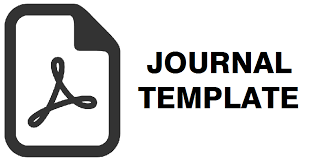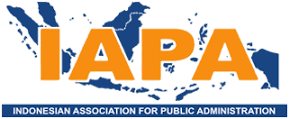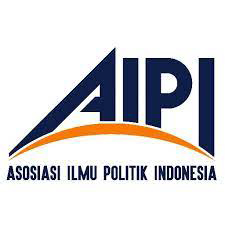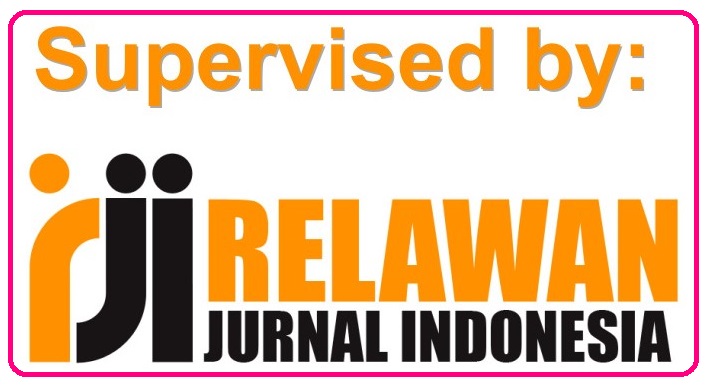Neostructural Realism’s Explanation on Russia-Ukraine War
Abstract
This article aims to explain why NATO keeps expanse on Ukraine, and why Russia responses it through invasion now. By using qualitative methode, library research, and the neostructural realism theory founded that since the dissolution of Soviet Union, NATO has been no longer appropriate abstracted as an alliance but an unipole security coalition, then the NATO expansion on Ukraine can be seen as the continuity of U.S.’ containment policy to Russia, and adding its coalition partners for unilateral action legitimacy in order to maintain its hegemon position which undermine Russia’s Eurasia great power vision and its crucial national security. Meanwhile the uneven distribution of power elements between U.S. and Russia as the macro international structure constraint Russia invasion but the bipolar world through Russia-China unlimited strategic partnership, and the shifting of U.S. offset strategy to Russia on hypersonic missile as the micro structure encourage Russia to take invasion now.
Downloads
References
Albright, M. (1998, December 8). Albright Statement to the North Atlantic Council. U.S. Department of State’s Archieve. https://1997-2001.state.gov/statements/1998/981208.html
BBC News. (2022). Ukraine Crisis: Nord Streem 2 will end if Russia invades - Biden.
Belton, C. (2022, March 7). Russia will stop “in a moment” if Ukraine meets terms - Kremlin | Reuters. Reuters. https://www.reuters.com/world/kremlin-says-russian-military-action-will-stop-moment-if-ukraine-meets-2022-03-07/
Bilinsky, Y. (1999). Endgame in NATO’s enlargement: the Baltic states and Ukraine. Praeger.
BITS. (1999). The Medium-Term Strategy for the Development of Relations between Russia Federation and European Union 2000-2010. The E.U-Russia Archive. http://europa.eu.int/comm/external_relations/russia/russian_medium_term_strategy/index.htm
BITS. (2000). 2000 Russia National Security Concept. In Berlin Information Center for Transatlantic Security. https://www.bits.de/EURA/natsecconc.pdf
Bryman, A. (2012). Social Research Methods (fourth). Oxford University Press.
Brzezinski, Z. (1997). The Grand Chessboard. Basic Books.
Commitee on Foreign Relations. (1998). The Debate on NATO Enlargement.
Cordesman, A. H. (2021). Chinese Strategy and Military Force in 2021.
Daalder, I. H. (1999, March 1). NATO, the UN, and the Use of Force. Brookings. https://www.brookings.edu/research/nato-the-un-and-the-use-of-force/
Dunlop, J. B. (2004). Aleksandr Dugin’s Foundations of Geopolitics. Demokratizatsiya, 12(1), 41–56.
DW News. (2022a, February). (208) Munich Security Conference 2022 - Day 2 | DW News - YouTube. https://www.youtube.com/watch?v=5tezG-z6QOo
DW News. (2022b, August 21). Germany′s Scholz says Putin started war for ′completely absurd′ reasons | News | DW | 21.08.2022. https://www.dw.com/en/germanys-scholz-says-putin-started-war-for-completely-absurd-reasons/a-62880926
Eichler, J. (2021). NATO’s Expansion After the Cold War. Springer. https://link.springer.com/10.1007/978-3-030-66641-5
Gaddis, J. L. (2005). Strategies of Containment. In Journal of Chemical Information and Modeling (Vol. 53, Issue 9). Oxford University Press. https://doi.org/10.1017/CBO9781107415324.004
Gallis, P. (2008). The NATO Summit at Bucharest, 2008. In CRS Report for Congress. https://www.diis.dk/files/media/publications/import_efter1114/report_2008-15_nato_comprehensive_approach_crisis_response_operations.pdf
Glance, A. T. A. (2022). Russia’s war on Ukraine : Military balance of power. In European Parliament.
Glaser, C. (1993). Why NATO is Still Best: Future Security Arrangements for Europe on JSTOR. International Security, 18(1), 5–50. https://www.jstor.org/stable/2539031?read-now=1&refreqid=excelsior%3A3be317c9e4142fcd65b7ef1feef146b5&seq=1#page_scan_tab_contents
Glaser, C. L. (2010). Rational Theory of International Politics. Princeton University Press.
Hakim, A. (2021). U.S.-China Rivalry and The Neostructural Realism (1st ed.). Quantum.
Hakim, A. (2022). Teori-Teori dan Metodologi Politik Internasional. In Quantum. Quantum.
Jacobsen, R. (2021). US Sanctions on Nord Stream 2. In Institute for Politic and Society (Issue January). https://www.cnbc.com/2019/12/18/us-sanctions-on-nord-stream-2-pipeline.html
Koga, K. (2018). The Concept of “Hedging” Revisited: The Case of Japan’s Foreign Policy Strategy in East Asia’s Power Shift. International Studies Review, 20, 633–660. https://doi.org/10.1093/isr/vix059
Kremlin.ru. (2022, February 4). Russian-Chinese talks • President of Russia. http://en.kremlin.ru/events/president/news/67712
Łoskot-Strachota, A., Bajczuk, R., & Kardaś, S. (2018). Nord Stream 2 divides the West. OSW Commentary No. 273, 06(273), 1–10. https://www.osw.waw.pl/sites/default/files/commentary_273.pdf
Lubecki, J. (2005). POLAND IN IRAQ. THE POLITICS OF THE DECISION on JSTOR. Polish Review, 50(1), 69–92. https://www.jstor.org/stable/25779521?read-now=1&seq=2#metadata_info_tab_contents
Lynch, D. (2004). Russia ’ s Strategic Partnership With Europe. The Washington Quarterly, Spring, 99–118.
Maçães, B. (2022). Russia cannot afford to lose, so we need a kind of a victory: Sergey Karaganov on what Putin wants. New Statesman.
Marsh, S., & Chambers, M. (2022). Germany freezes Nord Streem 2 gas project as Ukraine Crisis deepens. Reuters.
Mearsheimer, J. (2001). The Tragedy of Great Power Politics. W.W. Norton & Company.
Mearsheimer, J. (2022, June 23). The Causes and Consequences of the Ukraine Crisis . The National Interest Magazine. https://nationalinterest.org/feature/causes-and-consequences-ukraine-crisis-203182
Mearsheimer, J. J. (2014). Why the Ukraine Crisis Is the West’s Fault. Foreign Affairs, September/October, 1–12. https://www.mearsheimer.com/wp-content/uploads/2019/06/Why-the-Ukraine-Crisis-Is.pdf
Mearsheimer, J. J. (2016). Can China rise peacefully? The National Interest, 1–56. https://doi.org/10.7228/manchester/9781526121998.003.0003
Mearsheimer, J. J. (2017, November 23). The False Promise of Liberal Hegemony. Yale University. https://www.youtube.com/watch?v=ESwIVY2oimI
Morales Pedraza, J. (2021). the Consequences of the Us Sanctions Policy Implementation: the Nord Stream 2 Gas Pipeline Case. Journal of World Economy: Transformations & Transitions, April. https://doi.org/10.52459/jowett3110101
Morgenthau, H. J. (1948). Politics Among Nations. Alfred A. Knopf.
National Security Council. (1992, April 16). U.S Defense Planing for 1994-1999. U.S. Goverment Archives. https://www.archives.gov/files/declassification/iscap/pdf/2008-003-docs1-12.pdf
NATO. (2022, July 1). NATO - Official text: The Alliance’s 1991 Strategic Concept, 07-Nov.-1991. Official Text. https://www.nato.int/cps/en/natohq/official_texts_23847.htm?
Powell, R. (2003). Neorealism and Game Theory. In A. K. Hanami (Ed.), Perspectives on Structural Realism. Palgrave Macmillan. https://doi.org/10.1007/s10670-013-9585-6
Putin, V. (2018, March 1). Presidential Address to the Federal Assembly • President of Russia. Kremlin.Ru. http://en.kremlin.ru/events/president/news/56957
Rauchhaus, R. W. (2001). Explaining NATO Enlargement. Frank Cass Publisher.
Schreer, B. (2009). A New “Pragmatism”: Germany’s NATO Policy. International Journal, 64(2), 383–298. https://www.jstor.org/stable/40204515?read-now=1&refreqid=excelsior%3A073a16e41dbf1a41de332a8cd4a7a636&seq=3#page_scan_tab_contents
Security Council of Russia. (2021). Указ Президента Российской Федерации “О Стратегии Национальной Безопасности Российской Федерации.” In Представительная Власть - Xxi Век Законодательство Комментарии Проблемы. https://doi.org/10.54449/20739532_2021_4_35
Smith, M. A. (2004). Conflict Studies Research Centre: Political Culture Case Studies. In Russian Series 04/20.
Tyler, P. E. (1992, March). U.S. STRATEGY PLAN CALLS FOR INSURING NO RIVALS DEVELOP. The New York Times. https://www.nytimes.com/1992/03/08/world/us-strategy-plan-calls-for-insuring-no-rivals-develop.html
U.S. Mission to NATO. (2022). Why NATO Matters. https://nato.usmission.gov/about-nato/
USC US-China Institute. (2022, February 4). Russia-China Joint Statement on International Relations, February 4, 2022 | US-China Institute. https://china.usc.edu/russia-china-joint-statement-international-relations-february-4-2022
Vaisse, J. (2018). Zbigniew Brzezinski America’s Grand Strategist. Harvard University Press.
Walt, S. M. (1987). The Origins of Alliances. Cornell University Press.
Walt, S. M. (2009). Alliances in a Unipolar World. World Politics, 61(1), 86–120. http://www.jstor.org/stable/40060222
Waltz, K. (1979). Theory of International Politics. Addison-Wsley.
Waltz, K. N. (2000). NATO expansion: A realist’s view. Contemporary Security Policy, 21(2), 23–38. https://doi.org/10.1080/13523260008404253















